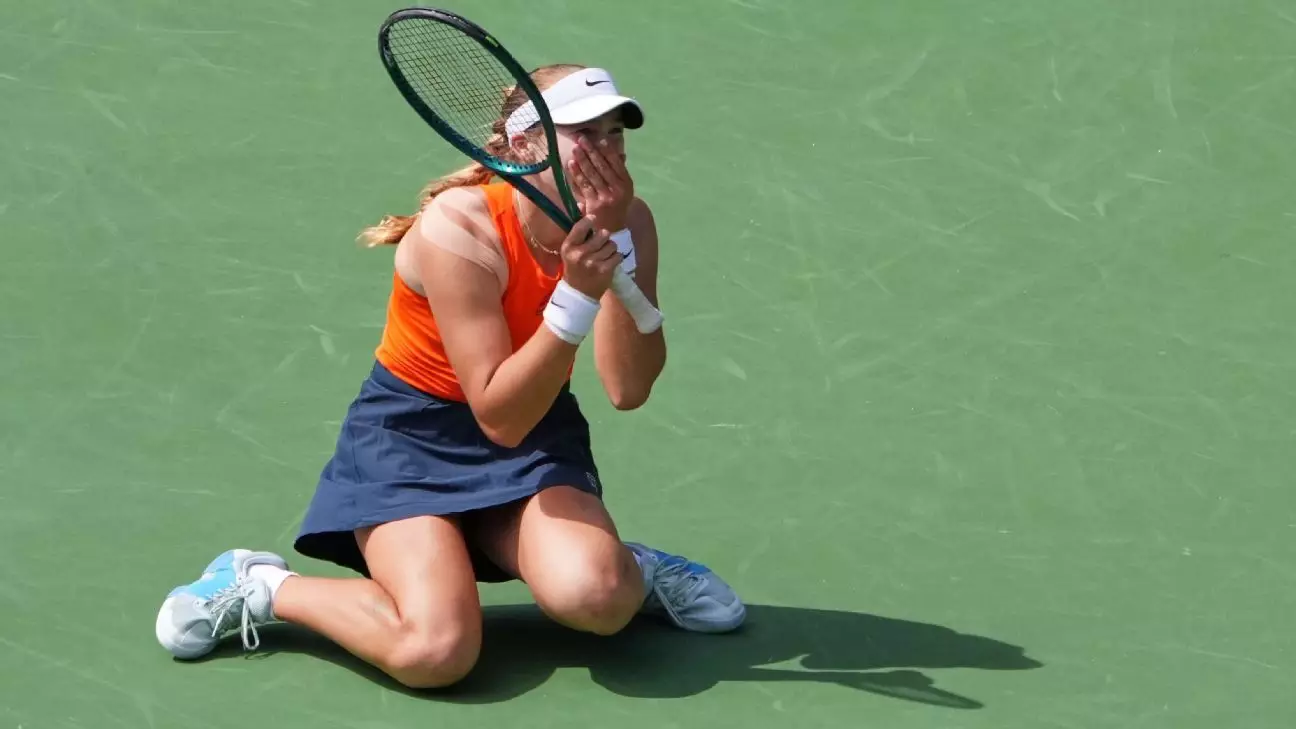In a stunning turn of events at the BNP Paribas Open held in Indian Wells, Russian prodigy Mirra Andreeva carved her name into the annals of tennis history by triumphing over world No. 1 Aryna Sabalenka. The 17-year-old’s gripping 2-6, 6-4, 6-3 victory not only secured her the championship title but also marked her as the youngest winner of this prestigious event since Serena Williams in 1999. What makes this achievement even more remarkable is Andreeva’s resilience—overcoming the nerves that come with competing at such high stakes and managing to assemble a mix of tenacity and talent that belies her tender age.
Andreeva’s triumph is not merely a single tournament win; it showcases an impressive 19-3 record for the season, the most victories in women’s tennis thus far. This young athlete is a thrilling representation of the new wave of talent that is transforming women’s tennis into a dynamic and unpredictable landscape.
The Comeback Kid
The match itself was a thrilling rollercoaster of emotions. After dropping the first set, Andreeva exhibited remarkable poise under pressure. Her intense body language, including moments of frustration when she smacked a ball into the stands, laid bare her competitive spirit. But instead of allowing anger to derail her game, she used it as fuel to rise higher. In stark contrast to her shaky beginning, Andreeva turned her performance around in the second set, particularly demonstrating a newfound vigor in her service games.
It’s this kind of self-belief and refusal to succumb to the pressure that sets her apart from many peers. After all, which other athlete would publicly interpret a rap icon’s acceptance speech as a personal mantra for perseverance? By thanking herself for believing in her abilities, Andreeva embodies a confident modern athlete who has mastered the balance between humility and self-assurance.
A Tactical Masterclass
When discussing her approach to facing Sabalenka’s fierce shots, Andreeva compared it to the agility of a rabbit, an entertaining analogy that further highlights her determination. Throughout the match, she demonstrated a clear understanding of pace and placement, skillfully navigating the court to extract the most out of her opponent’s powerful baseline game. Her serve improved dramatically, culminating in her first ace of the day that sealed the second set—an uplifting moment that reignited her momentum.
The pivotal third set began with Andreeva breaking Sabalenka’s serve at love, showcasing her quickly-evolving strategic gameplay. By the time Andreeva landed the final winner, her sheer joy at accomplishing this feat was palpable as she collapsed on the court, momentarily absorbing the euphoria of victory. Such emotional reactions not only emphasize the importance of this moment but also reflect the deeper significance of women conquering historic barriers in sports.
Historic Significance and Future Promise
Andreeva joins an elite group of players in women’s tennis by defeating both the world No. 1 and No. 2 at the same tournament—a feat last achieved by Williams in 1999. This parallel to legends of the sport raises thrilling expectations for the future; Andreeva’s ascent may signal the beginning of another golden era in women’s tennis, akin to what we witnessed in the late ’90s and early 2000s with the likes of Williams and Sharapova.
Her ability to win not only adds to her accolades but marks her as a serious contender against top-tier players like Sabalenka and reigning champion Iga Swiatek. These victories underscore how Andreeva is quickly adapting to her elevated status within the sport, having previously maintained an impressive 9-5 record against top-10 players since the start of 2024.
The Joy of Competition
During the trophy presentation, Sabalenka graciously acknowledged Andreeva’s impressive skills and the exciting potential the young player holds for the future of the sport. The camaraderie was tangible as both players celebrated the intensity of their match, further emphasizing that although the sport is fiercely competitive, respect among athletes enhances the overall experience.
Andreeva’s quirky pre-match behavior, combined with her nervous openness, only deepens her relatability and charm as an athlete. She admitted to her coach, former Wimbledon champion Conchita Martinez, that her nerves had gotten the best of her at times, offering an endearing glimpse into her character beyond the professional facade.
As Andreeva prepares for her next challenges, one thing is clear: this is just the beginning for a hopeful new champion in the world of tennis. The future is bright for this competitive spirit, and it will be exhilarating to witness how she continues to cultivate her prowess on the court.


Leave a Reply